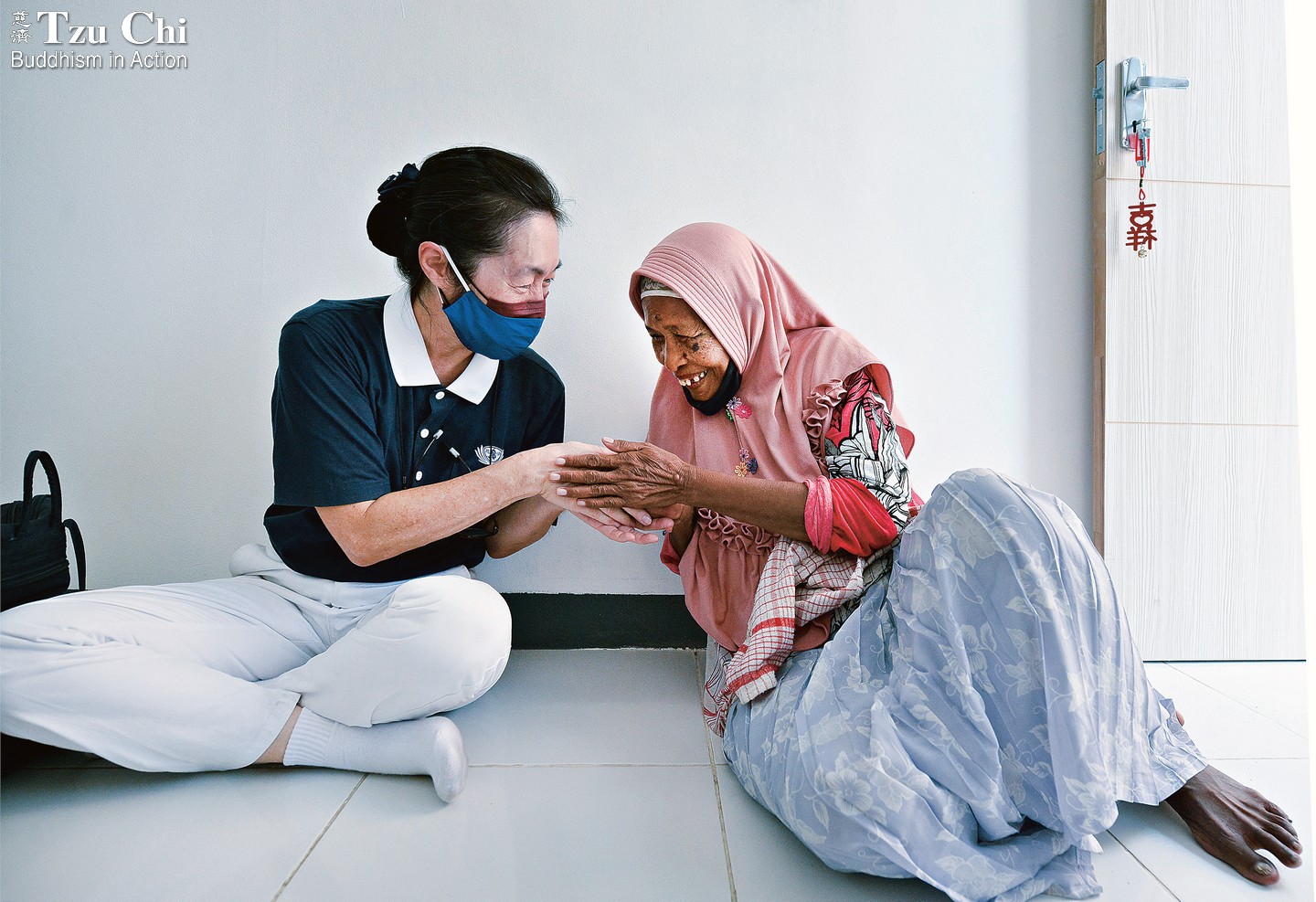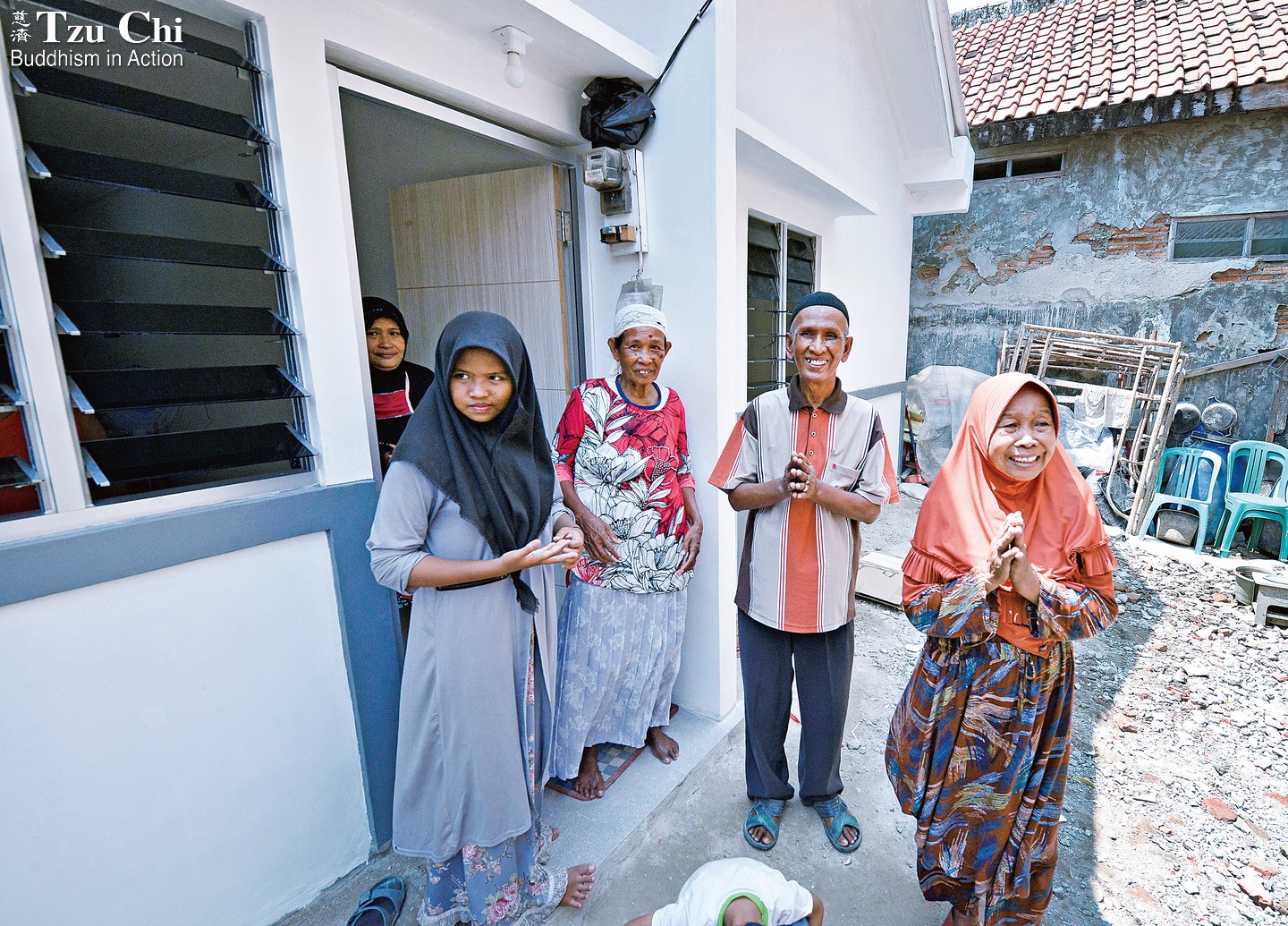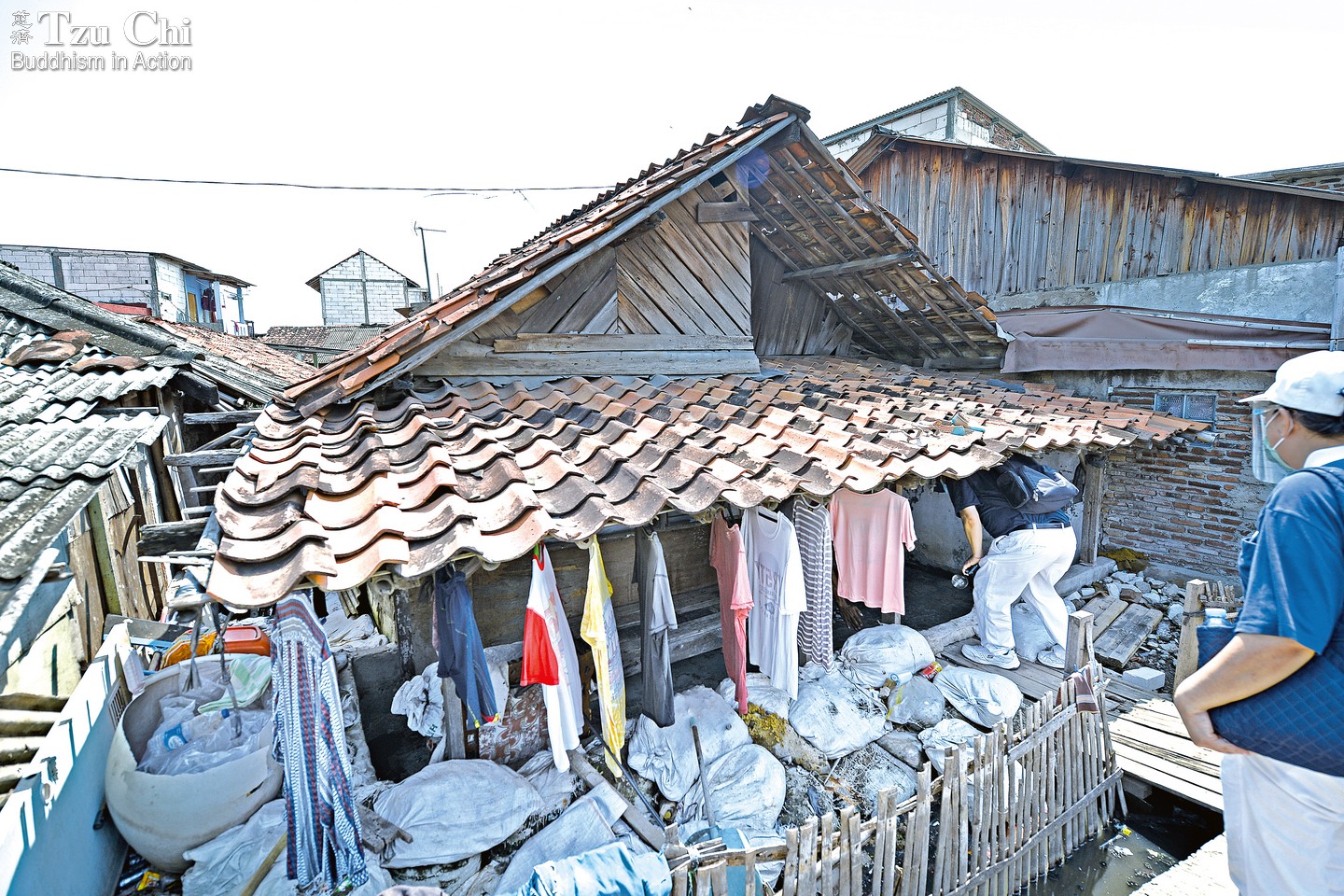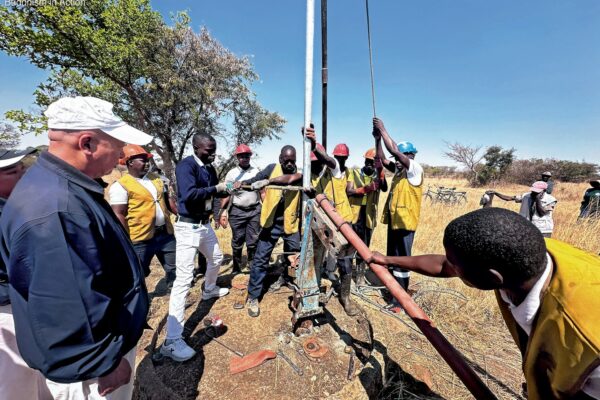By Metta Wulandari and Khusnul Khotimah
Translated by Wu Hsiao-ting
Photos by Arimami Suryo Asmoro
After Tzu Chi built new homes for them, the villagers could finally leave behind the days when their houses flooded with each high tide.
Kamal Muara is a coastal village in North Jakarta, Indonesia. Most of the houses there sit lower than the surrounding roads, making them susceptible to flooding whenever the tide rises. The situation was brought to the attention of Tzu Chi in 2018 for help. Volunteers visited the village and decided to build new homes for some of the families in the village. The first batch of ten houses were handed over to their new owners in November 2019.
Unfortunately, the housing project was forced to halt soon thereafter due to the coronavirus pandemic. It wasn’t until May 2021 that volunteers went to the village again to implement the second phase of the project, which was to build five more housing units. The handover ceremony for the five units took place on April 15, 2022, just in time for the residents to celebrate Eid al-Fitr, the holiday marking the end of the Muslim fasting month of Ramadan. Now they could observe the special occasion in their new homes.

A volunteer congratulates a villager on her new home.
Her first home with a bathroom
In addition to building the five houses, Tzu Chi prepared beds for the five beneficiary households. Volunteers collected other items among themselves for the families too, including gas stoves, rice cookers, electric fans, wardrobes, desks, chairs, and bedding. The residents had a complete range of new household items to use as soon as they moved into their new homes.
After the handover ceremony, volunteers split into five groups and helped the five families carry some of the household items home. Neneng, one of the villagers, hadn’t been able to hide her excitement when the ribbon was being cut earlier during the ceremony. She said to Teksan Luis, the volunteer standing next to her at the time, “I’m so happy! We’re so blessed [to receive the houses]! Thank you so much!” The villagers were grateful to the Tzu Chi volunteers, who were with them throughout the entire process, from the initial inspection to the finished homes. Teksan Luis said to Neneng: “Don’t cry any more, or else I’m going to burst into tears too. Congratulations again on your new house!”
Rasti is Neneng’s granddaughter. She had cried too when she had first stepped into their new home. The girl was in her first year of junior high school; her dream was to one day become a teacher. She promised to keep their new home clean and tidy. “I always had to hurry when I did my school assignments at home in the past,” said Rasti. “I rushed because I was worried that if the rain came, it would leak through the roof into the house and make my books wet. I’m thrilled to have this new home.”
Kartini and Muhammad are a married couple who received a new home too. Kartini told Tzu Chi volunteers that she visited the new home for a look a few days before it was completed. “I cried,” she said. “I knelt down in front of the bathroom and said a prayer of thanks. I’ve never in my life lived in a place with a bathroom. Thank our good lord, Allah. This is just wonderful!”
Kartini said they used to live in a poor excuse for a home. The walls weren’t sturdy nor did the roof protect them from the rain. There was no bathroom or kitchen. She worked as a cleaner in a school, and used the facilities there to wash herself. She did it secretly so that the principal or teachers wouldn’t know. Now, with the new house built by Tzu Chi, she no longer has to secretly wash at school.
Kartini’s new home is 580 square feet and has two bedrooms, a living room, a kitchen, and a bathroom. Eid al-Fitr was just around the corner and she looked forward to celebrating it in their new house. “Now that we have a kitchen,” she exclaimed, “we can make ketupat there with our new rice cooker. [Ketupat is a dish in which rice is wrapped in woven coconut leaves]. The new gas stove will also be a lot handier than our old diesel stove. You must come to our home as guests during Eid al-Fitr!”

Muhammad (second from right ) and his family stand in front of their new home, while his wife, Kartini (right), invites Tzu Chi volunteers to be their guests during Eid al-Fitr.
No room to stand up
Volunteer Teksan Luis is the coordinator for the housing project. When he and other volunteers visited the village for the first time, Komarudin’s home had made a deep impression on him. Komarudin’s house used to lie next to a dry, vacant piece of land, but the area had since become a marsh due to repeated flooding from the sea. To keep dry during flooding, Komarudin used sea shells to make the floor in his home higher. But because the roof had remained at the same height, Komarudin and his family had to bend down whenever they were in the house.
Teksan had cried when he saw the house; he had never seen anything like it. His own house might not have been good, but when compared with Komarudin’s, he knew he had nothing to complain about. “They had lived like that for decades without a word of complaint,” the coordinator said. “They never asked others to take pity on them and help them out.”
The volunteers also learned during that trip about the construction of a mosque which, even after seven years, had still not been completed. After discussion, Tzu Chi decided to help finish the mosque before proceeding to rebuild the homes for needy families in the village.
Because the residents didn’t know Tzu Chi, they suspected at first that the volunteers might have an ulterior motive behind their support for the village. It was only after repeated interactions between the two sides that the villagers realized they had thought too much. Teksan explained that they hadn’t done anything special to win over the villagers. They just went about their work with a genuine sincerity to help. Sensing their sincerity, the villagers eventually began to trust the volunteers. “As long as we give with love, people are sure to understand in the end,” he said. “Now even children in the village say hello to us on their own initiative when we visit. When there is a Tzu Chi event, villagers come to help too.”
Three years have passed since volunteers first visited the village. They’ve seen how it’s become cleaner since then. Teksan is more than happy to see the positive change. “I’m thankful to the villagers for responding positively to our reminders to keep their environment clean,” he said. “This is for better hygiene and for the benefit of their health.”
The volunteer remembered that one time when he was inspecting the progress of the project in the village, a resident carrying two black bags dripping with water approached him. “This is for you—some fish I caught,” the villager said to him. Teksan was a vegetarian, but he didn’t have the heart to turn down the villager’s warm gesture. He took the fish, deciding to pass the gift on to others. “We explained later to the villagers that we were vegetarian, and asked them not to give us anything in the future. We told them as long as they took good care of their homes, we’d be very happy.”

A volunteer bends down to enter a house in Kamal Muara, a village in North Jakarta. Most homes there sit lower than the surrounding roads and are susceptible to flooding. Anand Yahya



